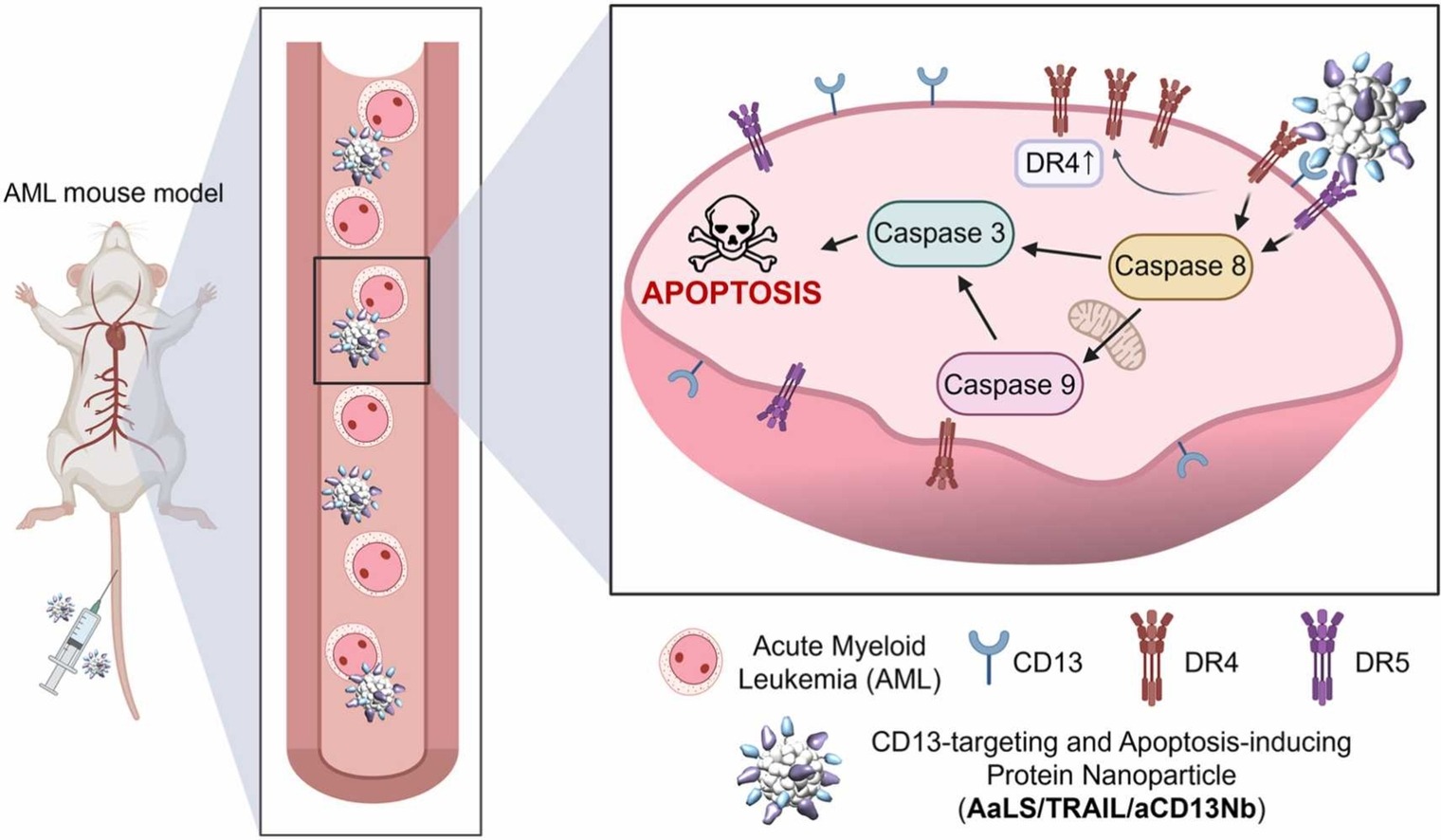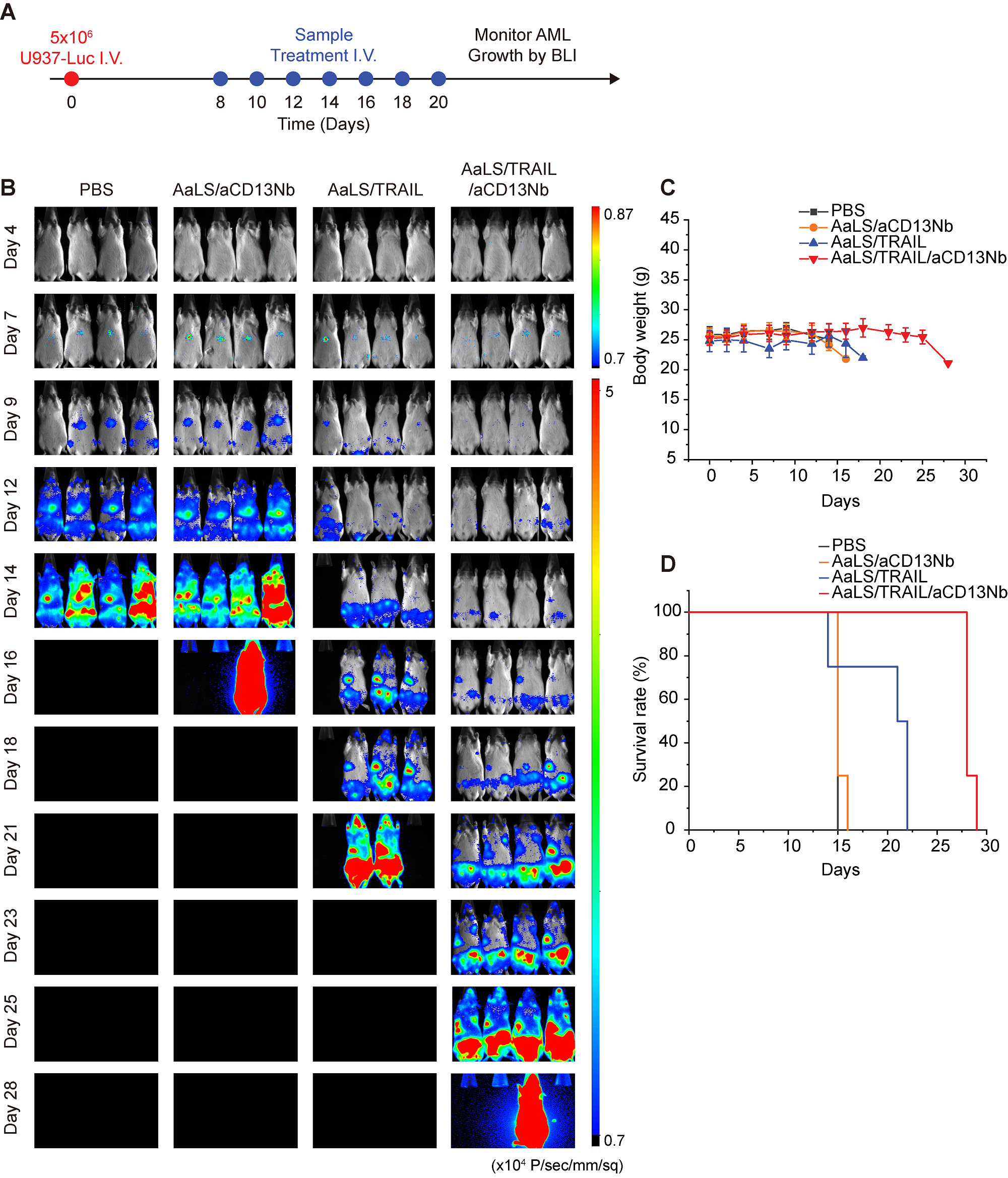Abstract
A research team, affiliated with UNIST has developed nanoparticles that effectively treat acute myeloid leukemia (AML), offering the potential to reduce side effects while enhancing therapeutic efficacy by selectively targeting and eliminating leukemia cells.
Jointly led by Professors Sebyung Kang, Eunhee Kim, and Sung Ho Park from the Department of Biological Sciences at UNIST, the research team created an AML-specific, apoptotic cell death-inducing protein nanoparticle, designated AaLS/TRAIL/aCD13Nb. In animal experiments, these nanoparticles demonstrated the ability to inhibit leukemia cell growth and significantly improve the survival rate of mice.
Acute myeloid leukemia is a life-threatening blood cancer with a mortality rate of 90% without prompt intervention. Current chemotherapy treatments often result in severe side effects, making them particularly challenging for elderly patients, highlighting the urgent need for new therapeutic options.

Figure 1. Schematic image describing the overall research.
The research team focused on CD13, a protein expressed on the surface of leukemia cells. They engineered a CD13-binding nanobody (aCD13Nb) that strongly interacts with CD13, in addition to attaching Tumor Necrosis Factor-Related Apoptosis-Inducing Ligand (TRAIL), a protein known to induce cancer cell death, to the surface of an Aquifex aeolicus lumazine synthase (AaLS) protein nanoparticle. This combination rapidly induces apoptosis in leukemia cells while sparing healthy cells.

Figure 2. In vivo anticancer efficacy of AaLS/TRAIL/aCD13Nb
The developed nanoparticles selectively adhered to and eliminated leukemia cells. In animal studies, mice treated with these nanoparticles exhibited a significant reduction in leukemia growth and an approximately twofold increase in survival rate compared to the control group.
Professor Kang stated, "This technology, which selectively targets and removes cancer cells, has the potential to reduce side effects associated with treatment. It represents a significant advancement in the management of leukemia." First author Hejin Jun added, "This study establishes a foundation for developing safe, targeted therapies for acute myeloid leukemia."
The findings were published in the online version of Nano Today on September 4, 2024. The research was supported by the National Research Foundation of Korea (NRF) and Ulsan Metropolitan City.
Journal Reference
Heejin Jun, Mirae Yeo, Jun Pyo Jeon, et al., "CD13-targeting and TRAIL-displaying protein nanoparticles effectively induce apoptotic cell death of acute myeloid leukemia, prolonging survival in mouse models," Nano Today, (2024).






